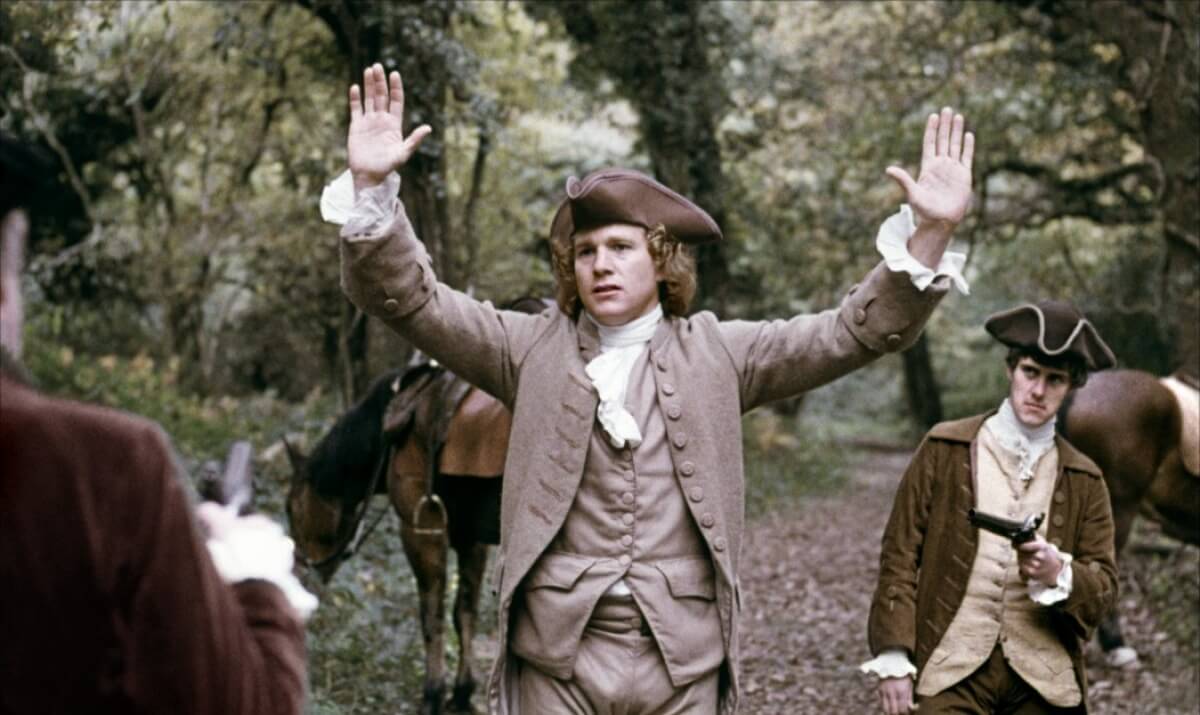Why ‘Barry Lyndon’ is Stanley Kubrick’s best film

Warner Bros.
Despite Stanley Kubrick’s untouchable reputation, his films have always been greeted with at least some hostility. “Barry Lyndon” had it worse than most: It was met, for the most part, with polite indifference. A languid costume drama sandwiched in between two hard-R barnburners (“A Clockwork Orange” and “The Shining”), it raked up a few token production Oscars but has generally been treated like a fat cultural vegetable — something to watch out of necessity, not for fun. And that’s a shame because it’s great fun, one of the funniest and most alive of his films, albeit one that’s often alive in images only slightly more animated than a 19th century painting.
The tide has shifted in the last decade or so; now it’s the dark horse in the director’s oeuvre — the cool, hip pick, championed by the likes of Martin Scorsese. (That said, it’s worth noting that an O.G. superfan was no less than Gene Siskel, who placed it in his 1975 top five.) This stealth acclaim is justly deserved; it’s among his trickiest and most subtle works, as well as just as radical a work in duration and hypnotic snail-pacing as “2001: A Space Odyssey.” It’s a po-faced take on a jaunty picaresque romp by William Makepeace Thackery, transforming a snickering comedy into a tragedy, all while retaining a satirical tone of knowing bemusement.
It also may be Kubrick’s most complicated portrayal of an unlikeable protagonist — a type in which he loved to trade. His previous effort was “A Clockwork Orange,” one of the most extreme cases of a hissable yet charismatic protagonist, for whom the audience, to some degree, is made to care. This came after “2001,” a truly post-human work, where the people are personality-less robots and the robot is despairingly human. Redmond Barry, “Barry Lyndon”’s hero, played by Ryan O’Neal, is fully on the anti- side — an Irish commoner-turned-rogue, who schemes his way into a fortune, only to lose it through hubris. Among his acts are becoming a gambling cheat, romancing a Lady (a scarily haunted Marisa Berenson) purely to obtain (and nearly blow through) her fortune and treating her son, Lord Bullingdon (Dominic Savage as a kid; Leon Vitali as a young man), terribly.
And yet it’s impossible to totally hate him. That’s in part due to some very subtle manipulations, most of them done in the first half. “Barry Lyndon” is equipped with an omniscient, wry narrator (the great Michael Hordern) who dryly comments on the action, wittily mocking those who think they’ve got a grip on their fortunes by alluding to failures to come. (He starts off right away, noting that Redmond’s father may have been a positive influence on him, just as he’s gunned down in the film’s first of several duels.)
But the narrator remains deeply empathetic towards Redmond’s plight, even as he stops short of chuckling at his naivete. The many backslides that befall Redmond are described by the narrator as ones that befall us all. When Redmond falls for his cousin (Gay Hamilton), who will soon shack up with a prosperous English Captain (Leonard Rossiter, who walks away with the film’s first third), it’s portrayed as the foolish first love that happens to us all. When he seeks to escape the army, it’s not portrayed as evil desertion but as something we’d all do in his situation. When Redmond, forced to become a spy for the Prussian army, breaks down in front of a fellow Irish ex-pat (Patrick Magee), it’s described by the narrator as a very emotional moment, one between two people who’ve been away from home so long that simply hearing a familiar accent “brought the old country back to [their] memory again.”
Even in the second half, when Redmond, now Barry Lyndon, is regularly ignoring and cheating on his wealthy wife, the narrator remains periodically empathic. The title card of the second half spoils that he will suffer a downfall, and long, long before things have truly turned sour the narrator offers a vague spoiler, intoning that “fate had determined that he should leave none of his race behind him, and that he should finish his life poor, lonely and childless” — this over a shot of him happily playing with his young and only biological son. No matter what Redmond has done to achieve his stolen wealth, it’s debatable he deserves such a grim end. The first half has taken great pains to show him a victim of circumstance, who adopted a cold mentality due to the cruelties that life dealt him. He became calculating as a survival technique, only to take it further when years of misery made him lust for extravagance.
Kubrick is often chastised for his clinical tone, and “Barry Lyndon” was raked over the coals for being especially distant. It’s not clear if those lodging these complaints snored through the film’s handful of nakedly gutting set pieces. No Kubrick film — and indeed few films — contain as devastating a scene as the one where Redmond, barely able to hold back tears, regales his about-to-die son, felled by a horse accident, of a tall version of his military victories, while a Schubert piece further jostles about our emotions. Not even the kid-equine death in “Gone With the Wind” has the same will to power.
Of course, it is a very remote film, as suiting a film about a period coated in social airs and expectations. There may not be another film where the characters are so proper; as it were, the most polite character may be the highwayman, Captain Feeney (Arthur O’Sullivan), who absconds with Redmond’s money as he ventures, solo, from home for the first time — a misfortune that puts him on an inextricable path to his rise and fall. People move slowly, if at all, and the effect on the viewer, as in most glacial cinema, winds up physiological; we’re so lulled by the stateliness that on the few chances the action explodes — in a handheld fight, such as the time Redmond beats Bullingdon following a verbal assassination — it jostles our body, not just our minds.
“2001” does the same thing, but there’s another thing the space opera and this period piece have in common. Both are about cosmic insignificance. They just get at it in radically differnet ways. In an excellent episode of the podcast “The Cinephiliacs,” the critic Bilge Ebiri elucidated upon the crafty ways the narration plays with the characters. It reveals their downfalls before they know it’s even that’s a possibility, and notes, in the final text screen, that “good or bad, handsome or ugly, rich or poor, they are all equal now.” (Ebiri also points out that even the narrator is upstaged: When he starts reading an obituary, he’s interrupted by the intermission and never gets to complete his words.)
But “Lyndon” goes farther than even that. The narrator feigns omniscience and even often points out how he knows things that no one remembers. Of a minor skirmish in the Seven Years’ War, he quips, “Though this encounter is not recorded in any history books, it was memorable enough for those who took part.” But our guide isn’t so god-like, and after Redmond, reduced to one leg and an annual pittance, leaves the Lyndons’ lives, he remarks that data on the remainder of his life is sketchy, barely known. It’s a reminder that life is fleeting and at best most of us will be remembered as a mere statistic, if that. If you don’t make the history books, you might as well have never existed at all.
“Barry Lyndon” can be found in the Blu-ray set “Stanley Kubrick: The Masterpiece Collection,” out Dec. 2, which contains all of his films from “Lolita” through “Eyes Wide Shut.”
Follow Matt Prigge on Twitter @mattprigge
















